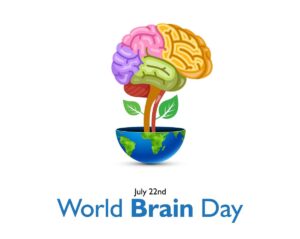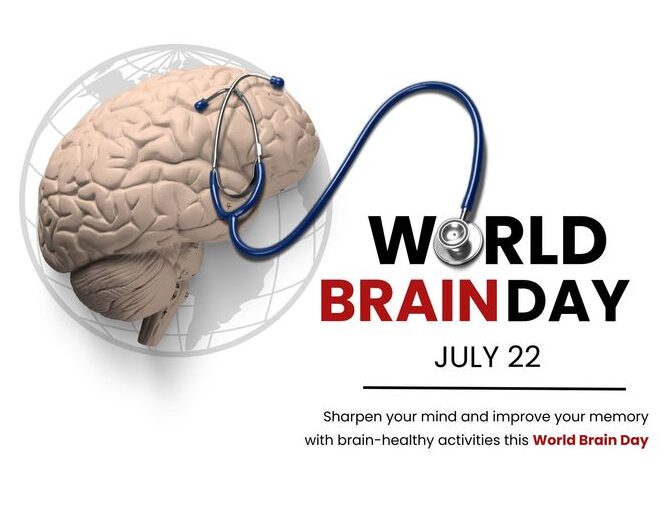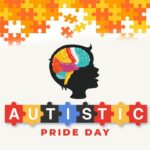🧠 World Brain Tumor Day: History, Facts, FAQs, Timeline, Significance, Wishing & Why It Matters to Everyone
Each year, millions of people across the globe face the life-altering challenge of brain tumors—a diagnosis that affects not just the individual but their entire support system. To acknowledge their fight, raise awareness, and advocate for early detection and better treatment, World Brain Tumor Day is observed every year on June 8.
- 📜 History of World Brain Tumor Day
- 📅 Timeline of Events
- 🧠 What Is a Brain Tumor?
- 📌 9 Hard-Hitting Facts About Brain Tumors
- 🌍 Why World Brain Tumor Day Matters
- 🤔 Frequently Asked Questions (FAQs)
- Q1: Who is most at risk for brain tumors?
- Q2: Are all brain tumors fatal?
- Q3: Can mobile phones cause brain tumors?
- Q4: What are the first warning signs?
- Q5: How is it treated?
- ✨ Wishing Messages & Quotes for World Brain Tumor Day
- 🧠 Observance: How Is It Celebrated?
- 🧩 Importance in Daily Life
- 🧠 The Importance of Empathy and Awareness
- 📌 Key Takeaways
- 🧾 Conclusion – Let’s Use Our Minds to Protect Our Brains
Let’s take a thoughtful deep dive into this important health awareness day and explore why this observance is not just for patients, but for all of us.
📜 History of World Brain Tumor Day
Founded in 2000 by the German Brain Tumor Association (Deutsche Hirntumorhilfe e.V.), a non-profit organization based in Leipzig.
The organization recognized the urgent need for a dedicated global awareness day to:
Educate the public
Advocate for better research funding
Show solidarity with patients, caregivers, and medical professionals
Since then, June 8 has been marked globally with seminars, walks, fundraising drives, and awareness campaigns.

📅 Timeline of Events
| Year | Milestone |
|---|---|
| 2000 | First World Brain Tumor Day initiated by German Brain Tumor Association |
| 2005 | Expanded across Europe through partnerships with medical institutions |
| 2010 | Indian hospitals and NGOs begin awareness events |
| 2015 | WHO emphasizes neurological cancers as a global health priority |
| 2020 | Digital observances increase due to COVID-19 pandemic |
| 2024 | Over 50 countries now participate in awareness and education campaigns |
🧠 What Is a Brain Tumor?
A brain tumor is an abnormal growth of cells in the brain or near it. Tumors can be benign (non-cancerous) or malignant (cancerous), and both types can be life-threatening depending on size, location, and rate of growth.
Two main categories:
Primary Tumors: Originate in the brain (e.g., gliomas, meningiomas)
Secondary (Metastatic) Tumors: Spread from other parts of the body
📌 9 Hard-Hitting Facts About Brain Tumors
More than 700,000 people are currently living with a brain tumor globally.
Over 120 types of brain tumors exist—making diagnosis and treatment complex.
Glioblastoma multiforme (GBM) is the most aggressive form with a survival rate under 5 years for most.
Brain tumors can occur at any age, but certain types are more common in children.
Symptoms can include headaches, seizures, vision loss, and memory problems—often confused with other conditions.
No single known cause exists, though genetics, radiation, and environmental factors may contribute.
Brain cancer ranks as one of the top 10 causes of cancer-related deaths in young adults.
Many people experience diagnostic delays, worsening outcomes.
Survivors often face long-term issues like fatigue, cognitive challenges, and emotional trauma.
🌍 Why World Brain Tumor Day Matters
🧬 Public Health Awareness
Early detection can significantly improve outcomes. Educating people on symptoms and when to seek help can literally save lives.
💰 Research and Funding
Brain tumor research is vastly underfunded compared to other cancers. This day helps demand fairer allocation of resources.
❤️ Support for Patients
The day acts as a beacon of hope for patients and families who often feel isolated and overwhelmed.
🩺 Medical Advancements
Promotes innovation in:
Non-invasive surgeries
Radiation therapies
Targeted drug treatments
AI-based early diagnostics
🤔 Frequently Asked Questions (FAQs)
Q1: Who is most at risk for brain tumors?
Anyone can develop one, but risks increase with age, family history, and exposure to radiation.
Q2: Are all brain tumors fatal?
No. Many are benign or treatable if diagnosed early. Prognosis varies widely depending on tumor type and stage.
Q3: Can mobile phones cause brain tumors?
Scientific consensus is inconclusive. Some studies show no clear link, but long-term exposure to EMF radiation is still under observation.
Q4: What are the first warning signs?
Persistent or severe headaches
Seizures without a prior history
Personality or memory changes
Nausea, especially in the morning
Difficulty speaking or understanding language
Q5: How is it treated?
Treatment includes:
Surgery
Radiation therapy
Chemotherapy
Steroids to reduce swelling
Targeted or immunotherapy (for specific tumor types)
✨ Wishing Messages & Quotes for World Brain Tumor Day
“Here’s to every fighter—your courage lights the way. 🌟”
“On this World Brain Tumor Day, let’s unite for awareness, research, and hope.”
“No one fights alone. We stand with all survivors and warriors today and every day.”
“Early diagnosis saves lives. Listen to your body and trust your instincts.”
“Hope is stronger than fear. Keep fighting, keep shining.”

🧠 Observance: How Is It Celebrated?
Awareness walks and marathons in cities like Berlin, Mumbai, and Chicago
Online support groups and patient webinars
Candlelight vigils to honor those who lost the battle
Free MRI and CT scan camps by hospitals and NGOs
Social media campaigns using hashtags like #WorldBrainTumorDay #BrainTumorAwareness
🧩 Importance in Daily Life
You may wonder: How does World Brain Tumor Day impact my life if I don’t have one?
Here’s how:
| Daily Life Area | Impact |
|---|---|
| Health | Reminds you to never ignore persistent headaches or vision problems |
| Family | Increases empathy for loved ones battling unseen challenges |
| Workplace | Encourages inclusive policies for neuro patients and survivors |
| Society | Pushes for funding and fair healthcare access |
| Mental Health | Sparks conversations around trauma and resilience |
🧠 The Importance of Empathy and Awareness
World Brain Tumor Day isn’t only for healthcare workers or researchers—it’s for every human being who eats, breathes, dreams, and thinks with the brain in their skull.
Understanding the pain and bravery of brain tumor patients helps us build a more inclusive, compassionate, and proactive world. It urges us to take headaches seriously, support caregivers, advocate for research, and foster hope where there is fear.
📌 Key Takeaways
Brain tumors are diverse and complex, affecting millions globally.
Early diagnosis improves survival chances significantly.
Observing World Brain Tumor Day fosters empathy, education, and medical advancement.
You have a role to play—whether by spreading awareness, donating, volunteering, or simply checking in on someone who may be silently fighting.
🧾 Conclusion – Let’s Use Our Minds to Protect Our Brains
Your brain is your most precious organ—it holds your thoughts, emotions, creativity, and consciousness. A tumor in the brain can upend everything.
So, this June 8, light a candle, post a message, read a survivor’s story, or just share a fact. Every voice adds strength. Every effort builds a better future.
Let World Brain Tumor Day be not just a date—but a movement that says no more lives lost due to silence, ignorance, or stigma.








